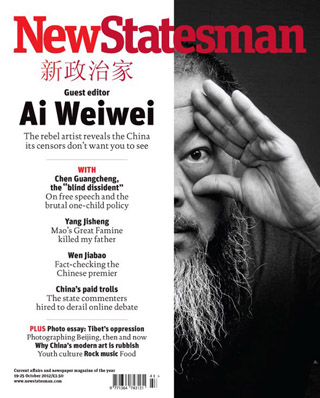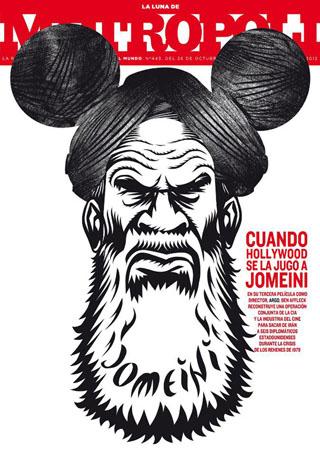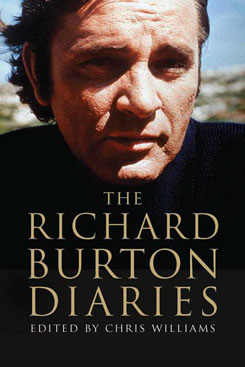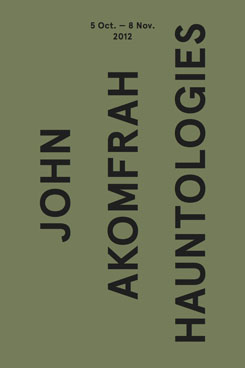It’s been a busy week for Ai Weiwei. Not only has he presented his own version of the global sensation “Gangham Style“—”Grass Mud Horse Style,” which, as the Washington Post‘s Max Fisher explains, is “a reference to an ongoing theme in his work,” basically an insult directed at China’s censors—only to see it blocked, of course, by those same censors (they, too, have had a busy week)—but Ai Weiwei’s guest-edited issue of the New Statesman is now out as well. One of the pieces he’s run is an assessment of China’s independent film scene by Zhu Rikun, artistic director of the Beijing Independent Documentary Festival and former chair of a film foundation from which he’s just withdrawn. In short: “Optimism would be misplaced.”
“First, self-censorship is serious. [Film festival] organizers are almost all pragmatists, not idealists. Nanjing’s China Independent Film Festival and Shanghai’s Film Festival on the Water, for example, exclude sensitive works and only screen films tolerated by the government.” Second, the “earliest group of underground directors—which included Zhang Yuan, Wang Xiaoshuai, Lou Ye and Jia Zhangke, and emerged between the late 1980s and 2000—was dubbed the ‘Sixth Generation’ by western film critics. It no longer exists. Most of the directors now submit to the system or have lost their creative power…. Nowadays, poignant and outstanding films cannot be distributed.”
“Here’s a movie that China doesn’t want you to see,” blogs the New Yorker‘s Richard Brody. It’s Ying Liang‘s When Night Falls and it’s “a marvelous work of cinematic art, but it’s also a horrifically fascinating and deeply poignant view of a non-independent judicial system at work: its subject, in effect, is procedural injustice.”
Related viewing (3’01”). Kevin B. Lee‘s report in August from the 9th Beijing Independent Film Festival.
And a related news item. The Rome Film Festival’s book of 2012 projects (PDF) includes synopses, directors’ statements and so on for several features in the works by the likes of Lisandro Alonso, Amit Dutta, Marco Bellocchio, Alexis Dos Santos, Cai Shangjun, Liu Jian, Xu Haofeng—and Jia Zhangke, who tells us that Almost Anonymous is a film that “talks about death and confronting the loss of relatives. This film mentions unspeakable needs. The film also explores the joys of the first sexual encounter, a gift from youthfulness. This is a film with the rotation of the four seasons, with the people coming and going. This work gazes the mountains, the earth, and lives of strangers. The film combines documentary with fiction. It reveals the predicaments and unpredictable miracles of life. Encountering strangers in the wilderness with the camera is my way of practice, and the life lesson that I must learn.”
In other news. “The European Union’s prize for human rights and freedom of thought was awarded to two Iranians on Friday, a lawyer and a filmmaker who have both been cut off from the outside world for defying the country’s leadership.” Claire Davenport for Reuters: “Imprisoned human rights lawyer Nasrin Sotoudeh, 49, and filmmaker Jafar Panahi, 52, were awarded the European Parliament’s Sakharov Prize for their courage in defending their own and others’ basic freedoms, the parliament said.”
“On October 20th, after one week of being on-line, the petition calling on Professor Raymond Carney, of Boston University, to return Mark Rappaport‘s materials—tapes, prints, papers and other items—to him, passed one thousand signatures.” Jon Jost posts a sampling of comments left by signatories and outlines the next steps: delivery of the petition and, if there is still no response from Carney, a call to have his tenure revoked as well as publication of letters “which demonstrate all too clearly his dishonesty and duplicity in his actions.”
“Some of the top figures in New York film culture of the past five decades paid tribute Wednesday to the late Andrew Sarris, the iconic film critic most noted for championing the ‘auteur’ theory in America.” Charles Lyons reports at Thompson on Hollywood.
Reading. Finn Brunton remembers Chris Marker in Radical Philosophy: “He saw, at once joking but not (as in so much of his work), the legacy of Dziga Vertov in DV cameras, and explored the texture, thrift and secrecy of video, the aleatoric space of CD-ROM, the raucous public bazaar of YouTube, and the production of cryptic and quiet websites…. Films like Sans-soleil, Letter from Siberia and Sunday in Beijing feel like a one-person network culture well before the fact—not proto- but post-Internet, a highly refined form of thinking and sensibility for a world rich in data, mediation and connection…. In his militancy, his melancholy, his knowledge of what it means to long for what did not happen (what ‘we Germans call Sehnsucht, and we Brazilians saudade’), Marker never lost a feline sense of play, pleasure and delight.”
“The seminal ‘lost’ film of the performance of the legendary Japanese Butoh founder Tatsumi Hijikata, believed irretrievably vanished as a memory of Hijikata’s work until its rediscovery in 2011, was one shot for projection at the Osaka Expo world’s fair of March-September 1970, using an experimental shooting and projection system, Astrorama,” which, as Stephen Barber explains at 3:AM, was “an ambitious system simultaneously projecting five celluloid film-reels, onto the internal dome of the Midori-kan, across five screens, thereby generating a 360-degree, immersive environment for its audiences.”
Book. Dwight Garner in the New York Times on The Richard Burton Diaries, which the actor kept “most assiduously” during the late ’60s and early ’70s: “It’s hard to imagine a midcareer actor working today whose diaries will be half as literate or lemony. So many lurid and appalling books have been written about Burton and Taylor that it’s hard to see them plain. The Richard Burton Diaries is, however, true to why tabloid writers flocked to them: It’s a love story so robust you can nearly warm your hands on its flames.”
Halloween. “From its classiest incarnations to its barrel-scraping lows, horror is perhaps our genre most concerned with moral questions.” With a review of Albert Lewin’s The Picture of Dorian Gray (1945), Michael Koresky launches the seventh annual run of Reverse Shot‘s series, A Few Great Pumpkins.
“Is it too early to proclaim that we’re living through a new golden age of horror, and almost nobody’s paying attention?” asks Salon‘s Andrew O’Hehir.
In MUBI’s Notebook, David Cairns argues that Jack Clayton’s Something Wicked This Way Comes (1983) “ought to be a regular seasonal treat. Or trick. Fans of the book need not fear disappointment, and admirers of Clayton’s skills will find more than a mere might-have-been. There are some dark treasures here.”
And at Sundance Now, Michael Atkinson offers half a dozen viewing tips.
New York. “Raya Martin‘s multiplicity as a key filmmaker in experimental cinema in the Philippines remains a complex subject to undertake,” writes Adrian Mendizabal in MUBI’s Notebook. “His radical and polarizing films earned him not only a reputation as a visionary of the film form, but also a mask of an aesthete, an art-for-art’s sake director detached from the social paradigm of Philippine cinema. These assertions led me to reassess Raya Martin’s career path to look into his films in terms of his varied style, his appropriations as a result of his post-colonial inquiries; and to position him within the ideological paradigm of Philippine cinema.” The Museum of the Moving Image‘s retrospective runs through Saturday.
London. “Hauntology,’ according to Jacques Derrida in his 1993 book Spectres of Marx, is the idea that the present is haunted by the ghost of the past, something neither present nor absent,” writes Laura Allsop for Sight & Sound. “John Akomfrah pluralizes this term for his new exhibition’s title, and across its sundry parts (a new single-screen and a new triple-channel video, a sound installation, a series of photo diptychs and a re-edit of a film from his back catalogue), evokes with a feather-light touch the many pasts present within the present.” Hauntologies is on view at Carroll/Fletcher Gallery through November 8.
In the works. “Jonathan Demme is set to direct Old Fires, a distinctly low-key-sounding indie family dramedy about a famous architect awakening from a coma to face rehab and an attempt at reconciling with his wife and kids,” notes Zach Dionne at Vulture.
Obit. “Jacques Barzun, the distinguished historian, essayist, cultural gadfly and educator who helped establish the modern discipline of cultural history and came to see the West as sliding toward decadence, died Thursday night in San Antonio,” reports Edward Rothstein in the New York Times. “He was 104.”
More browsing? The Film Doctor‘s posted another round.
For news and tips throughout the day every day, follow @KeyframeDaily on Twitter and/or the RSS feed. Get Keyframe Daily in your inbox by signing in at fandor.com/daily.







